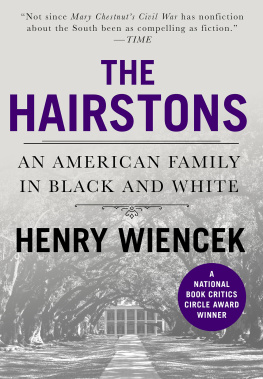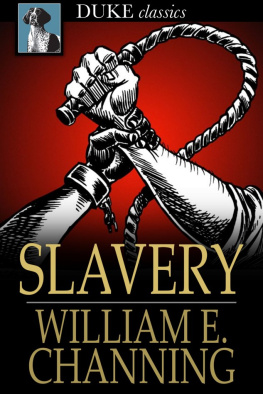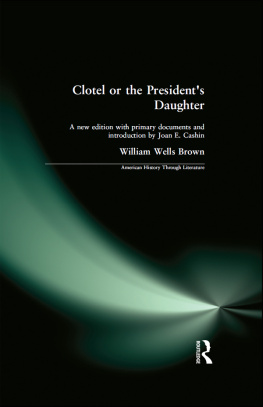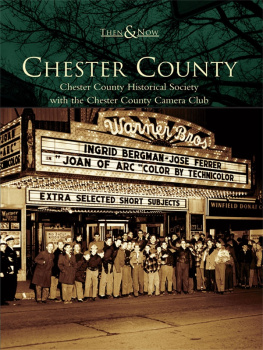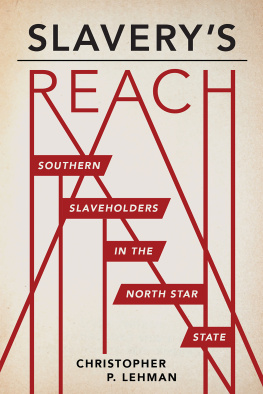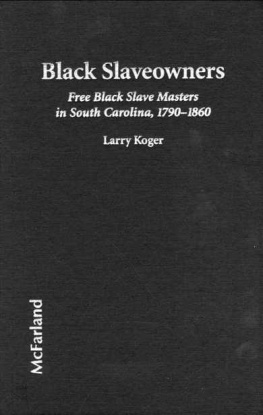Published by The History Press
Charleston, SC
www.historypress.net
Copyright 2017 by Larry Griffin
All rights reserved
Front cover, top, far left: Thomas Ruffin (17871870), chief justice of the Supreme Court of North Carolina (183352). In the public domain; second from left: from Treasure Troves; second from right: courtesy of Evonne Raglin; far right: Fort Defiance Pictorial Collection; bottom: Fort Defiance Pictorial Collection.
First published 2017
e-book edition 2017
ISBN 978.1.43966.125.3
Library of Congress Control Number: 2017931819
print edition ISBN 978.1.46713.583.2
Notice: The information in this book is true and complete to the best of our knowledge. It is offered without guarantee on the part of the author or The History Press. The author and The History Press disclaim all liability in connection with the use of this book.
All rights reserved. No part of this book may be reproduced or transmitted in any form whatsoever without prior written permission from the publisher except in the case of brief quotations embodied in critical articles and reviews.
FOREWORD
I am delighted to write a foreword for this book. It represents two subjects for which I have an insatiable thirst: history and genealogy.
For many years, I gave little thought to any connection I might have had to the South. Mammy Judy (though we never referred to her by that name, she was simply Grandma Judy) was dead. Grandma Clara and all of her children had relocated to Illinois and Pennsylvania in the 1920s. We all identified ourselves as northerners. I knew that there were distant relatives in northwestern North Carolina, but I had never been to Ashe or Wilkes County. They were just places I heard Mom and others mention on occasion. These relatives were not important to me. Little did I know their real importance to the Mammy Judy story.
My mother, Venie Smith Brooks, often referred to her relatives as the B-H-SsBarber, Harris and Smith. When I helped her start a family reunion more than forty years ago, she named the reunion The Roots of Love: Barber, Harris, Smith. All three-hundred-plus members were related to her, but not necessarily to one another.
Grandma Clara Barber, the ninth daughter of Grandma Judy, had married a free person of color named Edmund Harris. Their youngest daughter, Mary Jean (Mamie), married Arthur Smith, also a free person of color. Reflecting back over my life, I remember that in school, the white kids would make snide references to blacks and slavery when the history lesson got to the slave era. Those remarks were cruel and hurting.
Mom would always tell us that two-thirds of her lineages were free people of colornever slaves. She would say, Yes, Grandma Judy and Grandma Clara were slaves, but look at what we have accomplished in life. Mom would remind us that her aunts and uncles, children of Clara, did not appear to have been negatively influenced by the fact that Grandma Clara and her mother had been slaves. They were schoolteachers, a publisher of a newspaper, ministers and leaders in their churches and communities. All were landowners.
Those of us born in the North often gave little thought to the adversity our ancestors faced in the South. It was much later, when I began to have children of my own, that I began to think about the deep anguish Grandma Judy must have felt to have two of her children sold away from her. And I thought of the vulnerability she must have experienced when the Master fathered my Grandma Clara. Every challenge they overcame cannot be diminished in my mind ever again.
Earlier, I mentioned our relatives, the Smiths, who were free people of color. Census records list them as mulatto. I do not know where they resided before 1850, when they moved from Wake County. Wilkes County was intended to be a rest stop on their way to Illinois. Grandpa Eldridge, Grandma Jane and their twelve children fell in love with the rolling hills and beautiful scenery of the Traphill area of Wilkes County. Some of their sons did leave Wilkes County, moved to Ashe County and finally settled in Vermilion County, Illinois. Eldridge and Jane never left. Grandma Jane lived her final years with her son, Uncle Isaiah, a prominent teacher and community leader also featured in this book.
It is because of marriages between children of Henderson Waugh and the Smiths that I also have relatives who are descendants of Colonel Waugh. He is a key figure in this book. In fact, he was often around Grandma Judy and may have fathered Grandma Claras sister, Martha, who was sold as a child. If he did, then Martha, daughter of Mammy Judy, would have been Henderson Waughs half sister.
My involvement in the research that preceded the publishing of this book came about because the author, Larry Griffin, had started a newspaper series on Slavery in Wilkes County. I phoned him, a total stranger, and asked for his assistance in answering a critical question in my mind. The question was how my Grandma Judynow called Mammy Judya slave, could ascend to a position of such high regard by blacks and whites in Wilkes County. I could only surmise the cunning it must have taken for Mammy Judy to move through the hierarchy of slave jobs to become so valuable to the running of the Barber household. She was able to protect the majority of her children from being sold or sent to the fields to do grueling work. By now, our family had already published a book, Treasure Troves, about the lives of Mammy Judy and her descendants. I shared our family records with Larry, and the process began. We now have a valued friendship.
Our lives have been inexorably shaped by the legacy Mammy Judy and Grandma Clara left us. Their insistence that we always speak standard English and go to college was based on the fact that they found a way to become literate when it was illegal to teach slaves to read and write. Every facet of their existence was based on a determination to live a spiritual life, have their children gain an education, own land and have the respect of their community. Grandma Clara, Grandma Mamie and Mom had amazing wisdom. They always preached, Be independent; dream big, and always remember that our lives will be shaped by the choices we makedecisions have consequences.
This intriguing book provides an in-depth view of the lives of African Americans during slavery and after. Enjoy!
Evonne Raglin
Great-great-granddaughter of Mammy Judy


